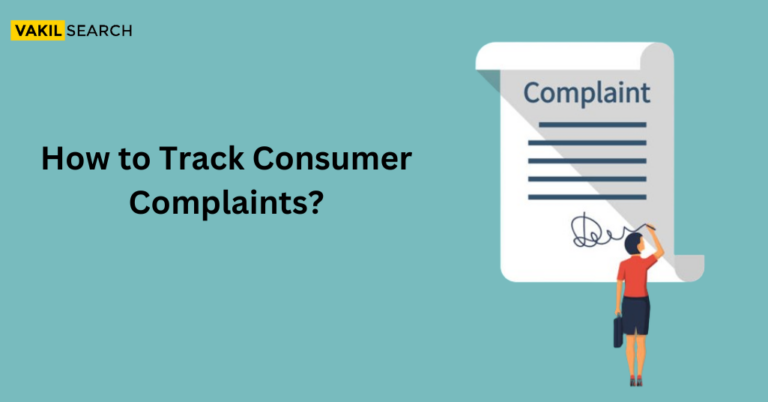Consumer protection is a very relevant and huge issue within e-commerce worldwide. In this article, we will cover how e-commerce has been covered for Indian consumers. Read on.
E-Commerce is nothing but a mechanism mediating transactions to sell services and goods via an electronic platform. E-commerce for consumers improves efficiency and broadens the choice via cost savings, competitiveness, and an improved process production organisation. Based on the guidelines 1999 of the OECD (Organisation for Economic Co-operation and Development), e-commerce involves computerised or also online business activities that include marketing, advertising, and transactions. For legal queries related to e-commerce, connect with Vakilsearch. Our legal advisors are ready to assist you in all possible ways. e-Commerce Consumer Protections, Growth, and Dimensions
e-Commerce Consumer Protection
E-commerce comprises online invoicing, ordering, and payments. The OCED 1999 guidelines are recognised globally and include all the 3 dimensions of consumer protection in e-commerce.
The 3 dimensions of consumer protection are:
- All consumers or users require access to e-commerce
- Building consumer confidence and trust is highly important within e-commerce and the continued growth of effective and transparent consumer protection mechanisms is needed to keep a check on deceitful, ambiguous, and biased practices online
- All the stakeholders, businesses, consumers, and government, consumers including the representatives need to understand how to create improved customer grievance redress systems.
E-commerce includes either the intra-border( domestic ) road or International ( cross-border ) connections. The following are the 6 e-commerce models that function globally:
- B2B(Business to Business) E-commerce
- B2C(Business to Consumer) E-commerce
- C2C(Consumer to Consumer) E-commerce
- C2B(Consumer to Business) E-commerce
- B2A(Business to Administration) E-commerce
- C2A(Consumer to Administration) E-commerce
Note: Regardless of any model, the customer is always a King within the market and their interests always need to be protected.
The Growth of E-Commerce
E-commerce has been growing since the internet or the world wide web (www) was introduced in the year 1991. Since then, with new technological developments, enhancements in internet connectivity, and also extensive consumer as well as business implementation, e-commerce has helped in the development of various organisations. However, it is very important to understand that this rise has its share of malpractices and there are online scams happening every day. Also, due to the biased and deceptive trade practices of online sellers, consumers are always living under the threat of dishonest vendors and service retailers. To prevent this menace, various E-Commerce Rules have been implemented that go leaps and bounds when it comes to transparency and lead towards a dignified market where consumers are well-informed and protected due to the stringent checks and balances deployed to prevent unfair and deceptive trade practices. The Indian e-commerce market has witnessed unprecedented growth in the last few years, and a satisfactory regulatory regime was required to bring a healthy and efficient redressal mechanism to streamline the existing framework. The e-commerce Rules have had a positive effect on the responsibilities that e-commerce platforms have toward their consumers. For any help with respect to raising an online consumer complaint, we recommend that you reach out to Vakilsearch right away.
Rules & Benefits of the E-Commerce Customers
There are many points stated within the e-consumer complaint act that makes it very helpful and beneficial for customers. Following are a few of the key points of the rules that benefit the customer:
- Consent of Consumers: It is interesting to note consumers now have to provide express consent to e-commerce entities once they purchase the services or goods and this consent cannot be recorded automatically, in fact, it is not available even as pre-ticked checkboxes.
- Special Treatment To Sellers: E-commerce entities now have to ensure absolutely no discrimination between the buyers of the ‘same class’ which (indirectly or directly) affects the consumer’s rights. Also, it is now compulsory for e-commerce entities to reveal the conditions and the terms governing the relationship with the sellers on the platforms that comprise a description of any kind of biased treatment that a market offers to any specific seller or with respect to any services or goods that are a part of the same category.
- Zero Cancellation Charges: Cancellation charges cannot be imposed on a user, even if the consumer needs to cancel an order that has been confirmed unless there are similar charges on the e-commerce entity if it individually cancels an order that has been by a consumer.
- Timely Refunds: All refund requests have to be done within a ‘rational period of time’. All e-commerce entities have different policies with respect to refunds. Also, there have been multiple cases where consumers have has to wait for a significant time to get refund payments.
- Disclosure: To stop unscrupulous vendors or retailers, the e-commerce rules have now made it compulsory for the vendors to reveal the necessary information to the market which needs to be displayed on the market platform. The information that needs to be displayed comprises the address as well as the legal name of the vendor, customer care number, contact details, PAN, applicable GSTIN, MRP breakup, handling and postage charges, applicable taxes, conveyance charges, expiry date of the goods, country of origin, terms of exchange, refunds, and returns, return shipping costs and any applicable warranties or guarantees on the services or goods.
- Misleading or False Advertisements: Sellers need to ensure that:
- They do not impersonate themselves as a consumer and post fake reviews
- They would not refuse to accept back the goods or refuse to give a refund when the goods or services are defective, deficient, or spurious or if they do not conform to the advertised features or the promised delivery schedule;
- They would not market their services and goods in a manner that is non-consistent with the real characteristics of the services or goods
- The description or images used in advertisements need to match the actual characteristics of the service sot goods.
Reach out to Vakilsearch for any help with any kind of legal matters with respect to consumer complaints.
Conclusion
Since the onset of the pandemic, customers have turned to e-commerce platforms for most of their purchases. In such a scenario, it is very important to protect the interests of all consumers. The new set of e-commerce rules ensures that consumers are protected from unscrupulous vendors and are not cheated of their hard-earned money. For any kind of help related to legal matters, you can connect with Vakilsearch.










